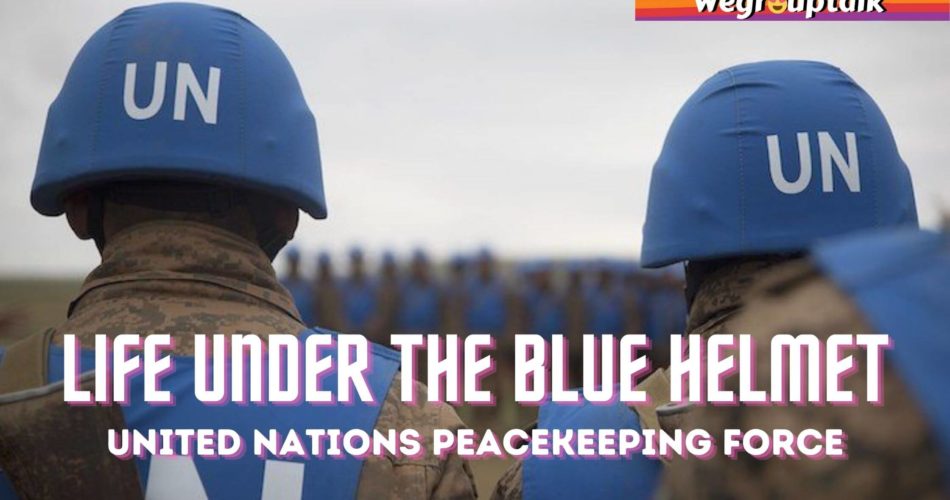It is evident that the United Nations requires remarkable forces to sustain peace globally, and here’s when the UN peacekeeping forces arrive. Let’s start all of this from the very basic.
The theory of international friendship and security has been there for many centuries. This concept was first implemented in European countries. The Congress of Westphalia of Europe first initiated it in 1648. It partly consisted of peace treaties to end the European war of religion.
Whether we talk in India or Europe or globally, maintaining international peace and security should be a priority. Having this concept will help the countries create better relationships with other countries or with other nations based on respect for the people of equal rights and self-determination; hence, there will be happiness and peace in the whole world.
This concept should be continued in the coming centuries as well.
What is international peace? It is an adjective of or relating to the conservation of peace, especially under the management of the truce’s international forces between hostile nations. As stated in article one of its charter, the United Nations’ primary purpose is to maintain international peace and security.
This organization is required to take adequate measures to prevent and remove specific threats, subduing acts of violence or another breach of the peace. It is to bring about peaceful means a settlement of international disputes or situations that might lead to a breach of peace. The United Nations has taken this great responsibility. The duties and measures taken to respond to this responsibility have been succeeding over the years.
What is the United Nations peacekeeping force?
It is a role held by the Department of the peace methods as a novel and dynamic tool developed by the organization as a way to help the hostile countries to create some terms and conditions for lasting peace. The world organization employs the United Nations peacekeeping force to maintain stability in some regions of armed conflicts. The United nation is a 3rd party.
That can involve itself in the conflict between the states and the struggle within the states. It creates a platform for the settlement of specific issues that have led to the armed conflict. If the accommodations don’t work, the UN forces’ presence may contribute to reducing the level of competition.
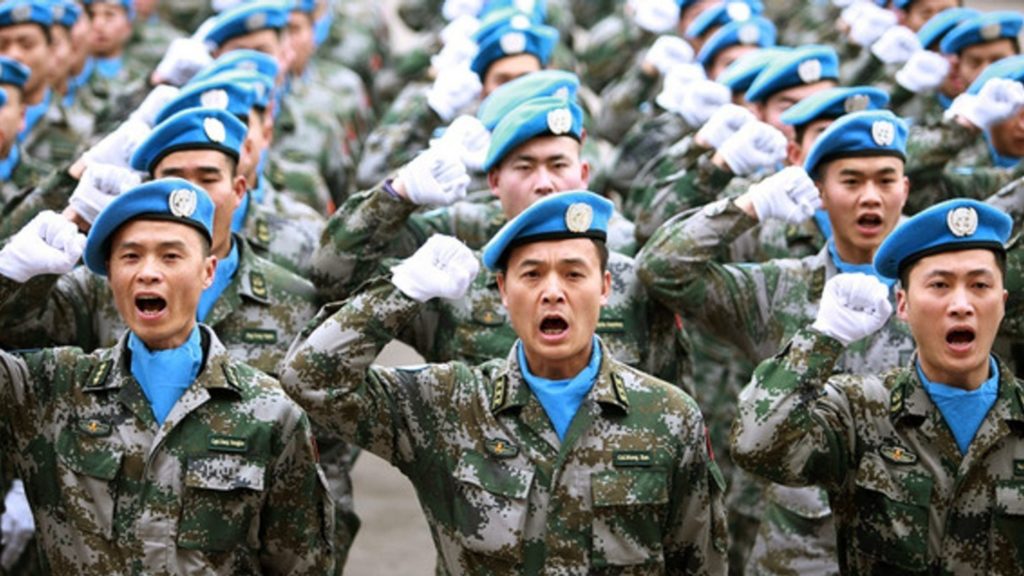
There are two kinds of peacekeeping operations first is unarmed observer groups. The second lightly armed military forces are allowed to employ their weapons for self-defence purpose only. There are 13 united nation operations carried out globally. There are an equal number of operations for the unarmed observer groups and lightly and military forces.
The purpose of the observer groups is to gather information for the United Nations about the actual and legit conditions which has been happening. In conflict, United Nations peacekeeping forces will only become active when both parties to a conflict accept their presence. They may also come handy by the opposing parties to avoid having any dispute. There are three basic principles of the United Nations
Peacekeeping
- Consent of the parties
- Impartiality
- Nonuser force except in self-defence and defence of the mandate.
Source of power: The United Nations charter of article one gives the United Nations Security Council, authority and responsibility. It is to take specific actions to maintain international peace and security between the hostile countries.
Financing: According to the facts, UN peacekeeping operations’ financial resources are the collective responsibility of the United Nations member states. According to the UN charter, every member state is legally obligated to pay their respective individual share for peacekeeping. The Security Council’s role is to make confident decisions about establishing, maintaining, or expanding peacekeeping operations.
Now to run these organizations, we need some people who people are termed as peacekeepers. The peacekeepers’ role is to monitor and observe the peace process in conflict areas and assist over there and implement the peace agreements signed by the opposing states, countries, etc. UN peacekeepers can often be referred to as blue berets or blue helmets because of their light blue berets or helmets, including soldiers, police officers, and civilian personnel.
These peacekeepers remain members of their respective armed forces. They should not be termed as an independent UN army as the United Nations does not have such a power. For example, Bangladesh accounts 6731 peacekeepers, India 5353, and the USA has only 33.
The peacekeepers face some challenges like attacks, complex mandates, uneven political support, or a lack of partnership.
The United Nations has authorized more than 70 peacekeeping missions around the globe. The largest of the current 30 missions is in the Democratic Republic of the Congo. More than 20,000 personnel since 1948, at least 3962 peacekeepers have been killed in operations.
The peacekeepers’ fatalities are due to mainly two reasons: the increase in number and the peacekeeping operations scale. Second is the changes in natural characteristics of the peacekeeping missions that have been made more dangerous with a higher fatality risk.
There were 72 missions since 1948. Its chief venture was in the Middle East to witness and support the ceasefire during the 1948 Arab Israeli war. Since then, United Nations peacekeepers have taken part in 72 missions worldwide, out of which 13 continue today.
The year which had the most United Nations peacekeeping Facilities was the 1960 United Nations mission in Congo. It has been described as a very controversial, scandalous mission conducted in a Cold War period because around 20,000 personnel were deployed in direct military operations. The highest number of activities of UN missions have been reported (250 Deaths).
The most significant emerging threats to international peace and security are:
- Climate change
- Cybersecurity
- Democratic process
- Economic crisis
- Energy insecurity
- Fragile states
- Homicide
- Press freedom
- Terrorism
- Violent conflict
- Nuclear and heavy weapon capabilities
The United Nations’ most significant contributors are four countries. First is the United States of America, which comprises 22% of the United Nations budget, China with 12.005%, Japan with 8.564%, and Germany with 6.090% comprising of 49% the entire UN budget.
The most significant contributor to United Nations peacekeeping force in Pakistan, the highest number overall with 8186 personnel, followed by India with 7878, Bangladesh with 7799, Ethiopia 6502
Active personnel 90,905 uniform 1,11,512 in total.
Active peacekeeping missions are
- United Nations military observer group in India and Pakistan It is observing the ceasefire in Jammu and Kashmir.
- United Nations interim administration mission in Kosovo promoting security, stability, and respect for human rights in Kosovo
- United Nations legation for the plebiscite in Western Sahara it is preparing for a choice.
- United Nations multidimensional nonsegregated stabilization deputation in Mali establishing the political process and promoting stabilize Mali
- United Nations organization stabilization mission in the Democratic Republic of the Congo aims to protect the civilians and strengthen unity in the Democratic Republic of Congo.
- United Nations multidimensional integrated stabilization mission in the Central African Republic mandated to protect civilians support transition process in the Central African Republic
- African Union-United Nations hybrid operation in the Darfur
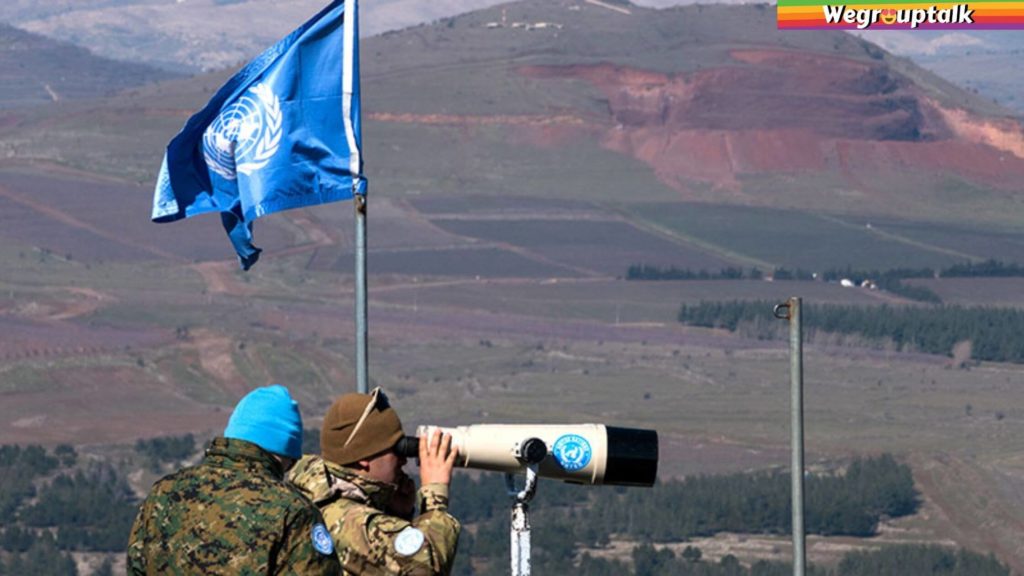
They are protecting civilians, facilitating humanitarian aid, and helping the political process in Darfur.
- United Nations interim security force of Abyei Demilitarising and monitoring peace in the disputed Abyei area.
- United Nations mission in the Republic of South Sudan protects civilians, monitors human rights, and supports the implementation of cessation Of hostilities agreement.
- United Nations peacekeeping force in Cyprus contributing to a political settlement in Cypress
- United Nations disengagement observer force supervising ceasefire and disengagement agreement ( Israel and Syria)
- United Nations interim force in Lebanon monitoring the cessation of hostilities and helping and ensure humanitarian access to the civilian population
- United Nations truce supervision organization helping to bring stability in the Middle East.
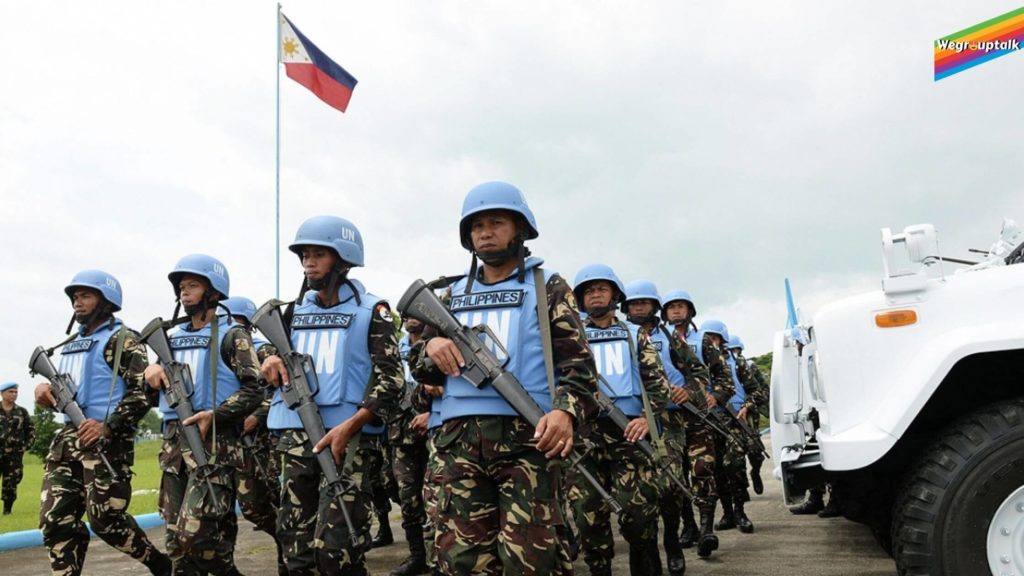
How has India helped the United Nations in maintaining peace?
According to UN Secretary-General Kofi Annan, “Over the decades, India has made an immense contribution to the United Nations, through the forces of its government, and the performance of Indian scholars, soldiers, international civil servants.
India has been one of the most eloquent voices helping The United Nations shape its agenda on behalf of the developing world. The experience and professionalism of its armed forces have proved valuable in time and again. In UN peacekeeping operations, over 100 Indian soldiers have given their lives.”
In India, article 51, exists in the Indian constitution and talks about international peace and security. Article 51 of the body under the directive principles of state policy talks about promoting international peace and security. The state is supposed to endeavour to, first of all, promote international peace and security.
Secondly, to maintain just an honourable relation with other states. Thirdly foster respect for international law and treaty obligation in dealing with organized people with one another. Fourthly to encourage settlement of international disputes by arbitration.
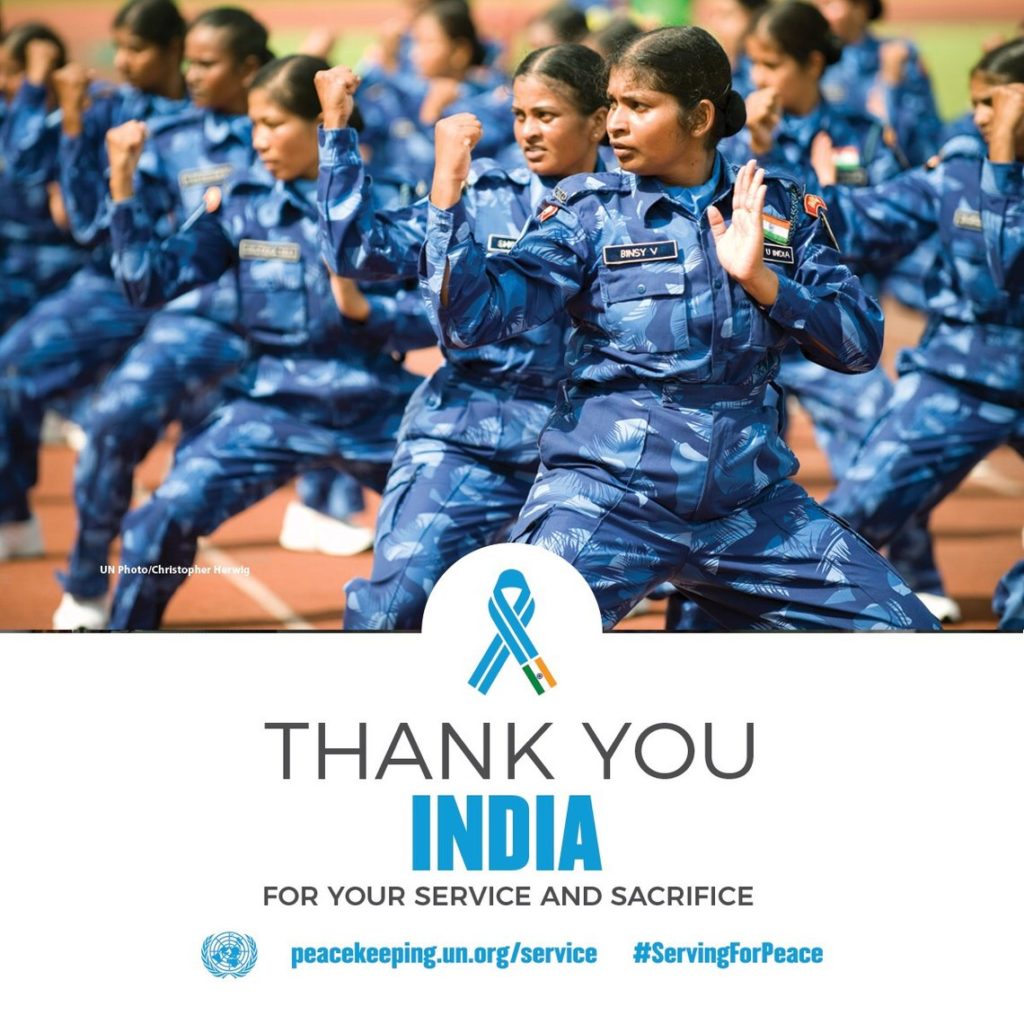
The role of Indian peacekeeping operations in different parts of the world was appreciated globally. That is why Indian officials are demanded in foreign countries’ armed forces because they have worked with diligence, efficiency, and impartiality. India has never lost its faith in the organization.
It is entirely dedicated, committed to strengthening the United Nations and its policies for maintaining peace. India has reached soldiers’ lives in peacekeeping operations of the United Nations for strategic gain and the ideal to maintain stability.
Ever system military personnel began to be deployed for peacekeeping, India has been a critical contributor starting with the 1956 Arab Israeli war. Later India’s contribution towards ensuring peace in Congo proved a vital role in its stability after decolonization.
There have been 50 instances of affirmed sexual exploitation and abuse against you and peacekeepers first. Still, there was not a single allegation against Indian soldiers. India had set an example when it deployed the first-ever female foreign police unit for a peacekeeping mission in Liberia.
Follow us on FACEBOOK, INSTAGRAM and TWITTER to stay connected.
Also Read- International Peace VS Terrorism

